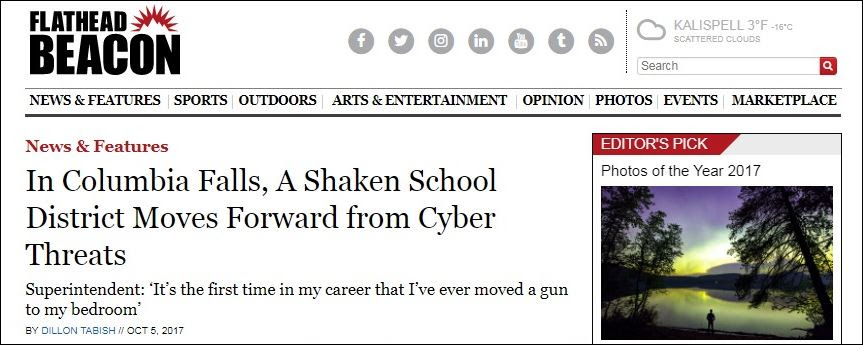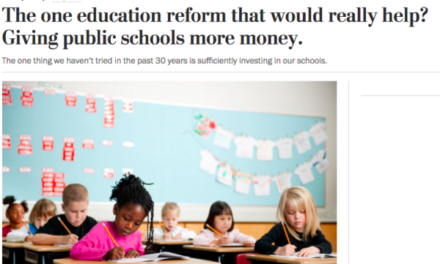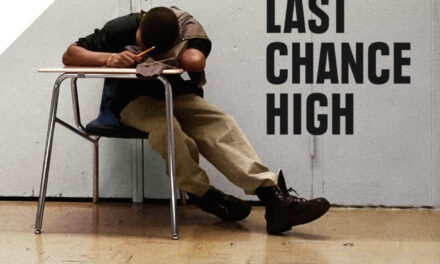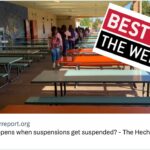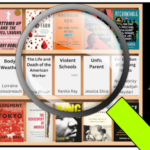| MEDIA TIDBITS

 Kudos to NPR for following its policy against having staff reporters flog their own book projects in stories produced by the station, as in this story about screen time and kids. That being said, go out and buy Anya Kamenetz’s new book about parenting and screen time.
 Predictions are journalism in its laziest, least accountable form. I hate myself for gobbling them up. Some recent examples include NPR’s Claudio Sanchez and EWA Radio (featuring Scott Jaschik and Gregg Toppo). EdSource’s John Fensterwald does it right by revealing how he did on last year’s predictions. Predictions are journalism in its laziest, least accountable form. I hate myself for gobbling them up. Some recent examples include NPR’s Claudio Sanchez and EWA Radio (featuring Scott Jaschik and Gregg Toppo). EdSource’s John Fensterwald does it right by revealing how he did on last year’s predictions.
 “The hurricane offered a clean slate reminiscent of education reform efforts in New Orleans after Hurricane Katrina in 2005.” Really, The 74? At the very least this is tone deaf. “The hurricane offered a clean slate reminiscent of education reform efforts in New Orleans after Hurricane Katrina in 2005.” Really, The 74? At the very least this is tone deaf.
 “Twenty sixteen and 2017 saw a flurry of coverage [of school segregation]— much of it lacking in context,” observed The 74’s Beth Hawkins. True enough, but ouch. “Twenty sixteen and 2017 saw a flurry of coverage [of school segregation]— much of it lacking in context,” observed The 74’s Beth Hawkins. True enough, but ouch.
|




